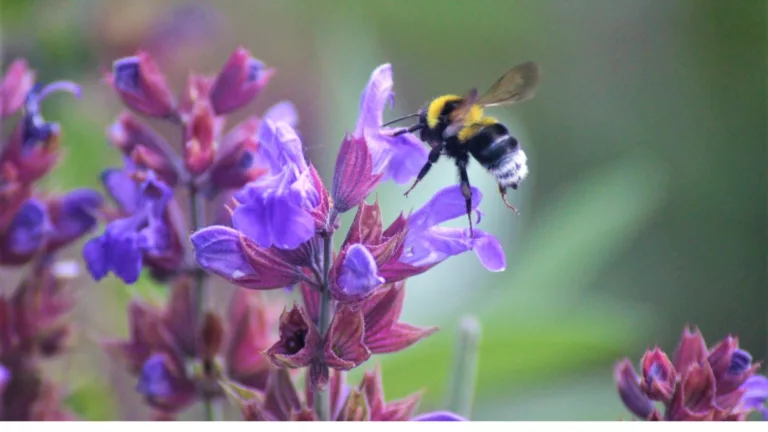In recent years, numerous scientific studies have been conducted in an effort to understand the unique properties of Moldovian dragonhead, also known as Dracocephalum moldavica. Its essential oil boasts an enormous variety of applications and is rightly regarded as a rough diamond in the treasury of essential oils.
The content of this precious essential oil in fresh plants is about 0.25%. Moldovian dragonhead essential oil is a lovely pale-yellow liquid with a honey-and-fresh-lemon aroma. Its main components are geraniol, geranyl acetate, and citral. Their ratio varies depending on the plant’s phenological stage of development. The natural chemical composition of the essential oil remains practically unchanged during storage.
Of particular interest is the high geranyl acetate content in the chemical composition of Moldavian dragonhead essential oil, which makes it extraordinary and one of a kind in the world; it underpins the oil’s powerful anti-inflammatory, antioxidative, and immune-stimulating properties and has attracted the attention of the scientific community and aromatherapy connoisseurs.
The exceptionally high antimicrobial activity of the oil is due to oxygen-containing derivatives of monoterpenoids. Among the most valuable components of Moldavian dragonhead essential oil are citral and geraniol, which exhibit a strong fungistatic effect that halts the development of a number of phytopathogenic fungi—for example Trichophyton rubrum and T. mentagrophytes. Even with prolonged regular use, pathogenic microorganisms practically do not develop resistance to the essential oil.
The anti-inflammatory activity of Moldavian dragonhead essential oil is the sum of the biological actions of its individual fractions and is based on antioxidant activity and the ability to stabilize lysosomal and cytoplasmic membranes, which actively influences vascular permeability. Another promising benefit is its use as an immunomodulator. Recent studies and numerous tests have also shown that the plant’s bioactive complex has antitumor activity and a pronounced spasmolytic effect in asthma.
The constituents of Moldavian dragonhead essential oil demonstrate strong antibacterial, antifungal, and antioxidant action. Scientific studies have already confirmed high antibacterial activity against bacteria (Bacillus cereus, Micrococcus luteus, Bacillus subtilis, Serratia marcescens, Staphylococcus aureus, Klebsiella pneumoniae) and against four species of pathogenic fungi (Aspergillus niger, Fusarium oxysporum, Rhizopus stolonifer, Mucor hiemalis).
Recent research indicates that Moldavian dragonhead essential oil has strong calming, antispasmodic, adaptogenic, antiseptic, anti-inflammatory, and estrogen-like effects that stimulate adrenal-cortex activity (an effect primarily attributed to citral in its composition). The oil also has a positive impact on psychological stress and symptoms of heightened sensitivity and excitability of the autonomic nervous system, on ovarian dysfunction, and on metabolic disorders. The natural oil contains constituents that encourage digestion and soothe symptoms of gastrointestinal disorders, help relax smooth muscle, and relieve spasms of the gastrointestinal tract.
The pure natural essential oil exhibits a strong cardioprotective effect.
Citral, contained in Moldavian dragonhead essential oil, has proven effectiveness against tubercle bacilli. It also shows beneficial effects in a number of inflammatory diseases of the female reproductive organs.
The essential oil of this wonderful plant helps the body cope much better with the symptoms of inevitable stress and to recover fully after colds and viral illnesses. It should be noted that, unlike some of the most beneficial classes of herbs—the classic adaptogens of the Araliaceae family (e.g., ginseng)—it does not stimulate the central nervous system or raise blood pressure.
In several research laboratories, the aromatic plant compounds contained in various essential oils were evaluated. Moldavian dragonhead essential oil received 4.0–4.5 points (out of a possible 5) and was recommended for use in the perfumery and cosmetics industries—for the production of soaps, creams, and high-quality, long-lasting perfumes.
In its medicinal properties, Moldavian dragonhead closely resembles lemon balm. It exhibits soothing, analgesic, and antispasmodic effects, stimulates appetite, and supports healthy digestion. In some European countries (Bulgaria, Romania, Hungary, Germany) it is cultivated as a medicinal plant.





